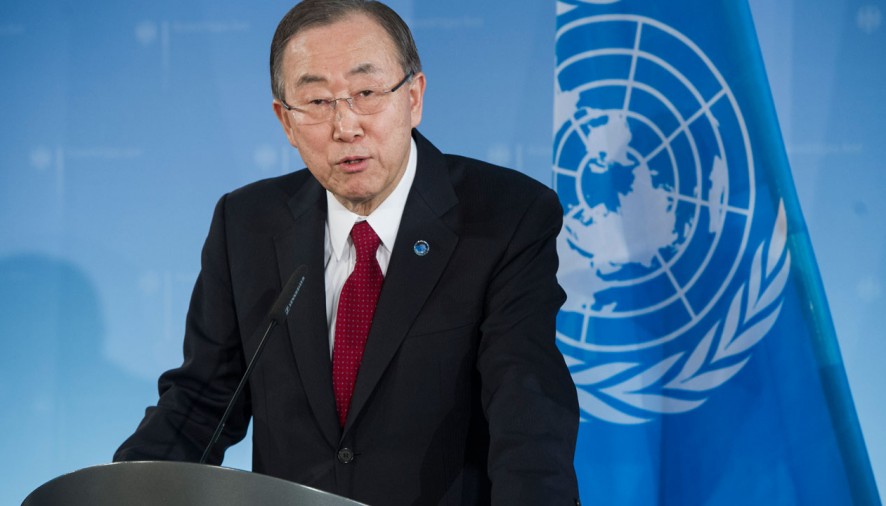While the presidential elections take the limelight, the race for the next United Nations Secretary-General trundles along in the background, as Ban Ki-Moon made his final address to the General Assembly last month. A Secretary-General rarely receives a resounding applause upon completing their terms of office, but the general consensus is that Ban has been especially disappointing.
Ban hasn’t had the same charismatic confidence seen in his predecessor, Kofi Annan, tending to be aloof during his tenure, his most memorable moment perhaps being a festive rendition of ‘Ban Ki-Moon is coming to town’ (YouTube it). In fact, many would judge Ban to be weak and reticent. He hasn’t stood up to the global powers, he hasn’t taken responsibility for UN fiascos such as the Haiti cholera epidemic, and he can’t speak French. Worst of all, the public perceives inaction from the UN in conflicts such as Ukraine and Syria, and in combating the refugee crisis.
But it’s important to recognise the limitations of the role of the Secretary-General; support from the permanent members of the Security Council is essential to achieve anything, thus Ban’s deference towards them should not be viewed as timidity. Boutros Boutros-Ghali challenged the US over Bosnia during his time as Secretary-General, and consequently he was kicked out of the position before his customary second term. Ban hasn’t put pressure on the Security Council to act in Syria, but ultimately he’s not working in a cohesive system.
Although often overshadowed by these perceived failings, Ban has proved himself to be committed and influential. When he was appointed, Ban concentrated his efforts in Darfur, and persuaded Sudanese leader Omar al-Bashir to allow peacekeepers into the country. He has worked tirelessly to mediate between Iran and the international community. Moreover, Ban’s primary focus has been challenging climate change, and the Paris Agreement made last December, to limit global climate change to 2°c, was the triumphant culmination of his campaign.
Ban’s critics will also point out that despite much rhetoric on the Israel/Palestine conflict, his UN has allowed the situation to escalate, failing to work towards a resolution of the dispute that has plagued the UN since it’s inception. But Ban’s condemnation of the actions of the Israeli leadership has broken the international silence that Annan was a part of, and his challenges to Israel within the General Assembly pave the way towards a ‘long overdue’ Palestinian statehood.
The question often asked of a Secretary-General is which half of their title do they conform to – are they a Secretary of a General? Ban was wholeheartedly the former, not possessing the traits of a general that many believe the role demands. Perhaps Ban Ki-Moon’s quiet diplomacy during the past decade of turmoil will not be memorialised, but he performed well and brought new dimensions to what Dag Hammarskjold described as ‘the most impossible job on earth’.
Hugo Jones
(Image courtesy of United Nations Information Centre, Tehran)

